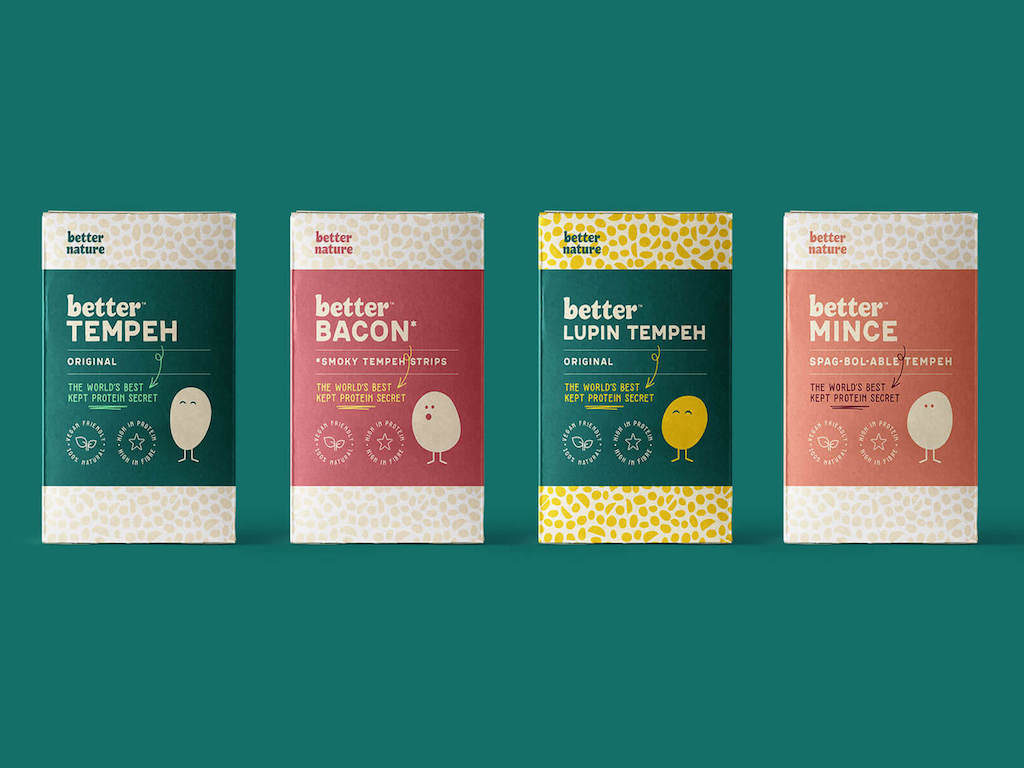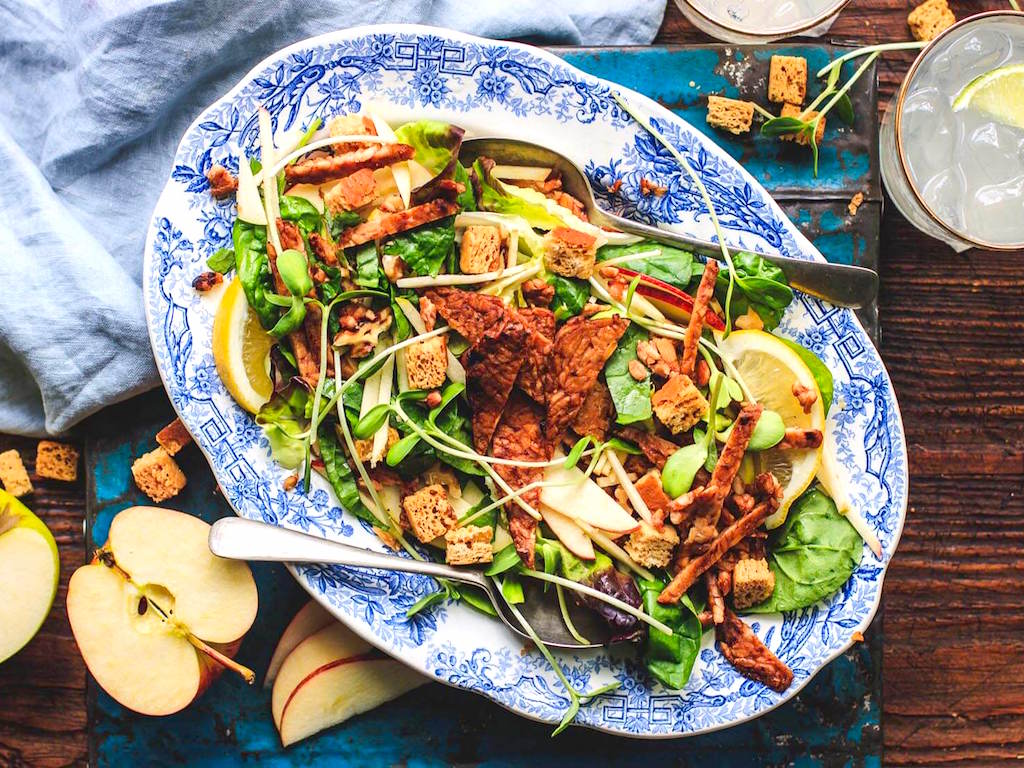3 Mins Read
Foodtech startup Better Nature is on a mission to revolutionise tempeh, the high-protein traditional Indonesian fermented soybean product which is a staple of the country’s daily diet. The company’s founding team, which includes a Hong Konger and an Indonesian, are passionate about providing tempeh products to the world in the hopes of making the global food system more people, planet and animal friendly. Declaring it the “world’s best kept protein secret”, UK-based Better Nature wants the world to discover this delicious ancestral food and encourage plant-based eating globally.
Tempeh, often mistakenly confused with tofu, is a high-protein food made from naturally culturing soybeans into a dense cake-like product with a chewy texture and a nutty, earthy taste. Unlike most tofu, tempeh is always fermented, making it more easily digestible. While traditionally made with soybeans, tempeh can be made from a mix of any cooked legume, grain, nuts or seeds. Not only is it naturally high in protein, it also chock full of fibre and gut-friendly prebiotics.
Looking to make the plant-based protein mainstream, Better Nature hopes to encourage more home cooks to use tempeh in place of meat or dairy proteins in meals, and in the process reduce the carbon footprint and resource wastage associated with animal-based proteins.

While Better Nature is predominantly based in London, the team has strong Asian roots. Co-founder Driando Ahnan is an Indonesian food scientist who saw an opportunity to bring the naturally plant-based protein to a more global audience, and CEO Chris Kong hails from Hong Kong.
Speaking to Green Queen, Kong spoke of the traditional food’s incredible potential: “Tempeh can play a huge role in meeting the protein demands of today and tomorrow in a manner that is sustainable, ethical and incredibly healthy.”
Their current tempeh-based product range includes Better Mince, Better Bacon and blocks of Original Tempeh and Lumin Bean Tempeh. All their products are made using ProTerra and Fairtrade certified responsibly-sourced legumes (soya beans and lupin beans), apple vinegar and fermented with rhizopus culture.
While the startup’s products are not yet started available for retailer, they have plans to get their tempeh on British supermarket shelves sometime in the next year, before expanding elsewhere in the United States and the Asian Pacific region. The company is also working on getting their products certified organic in the near future.

Speaking about product development, Kong explained that “By applying a 21st-century scientific lends on the process by which tempeh is made, we are improving the nutritional and sensory qualities of our tempeh – to make it even meatier in texture and even more delicious whilst keeping it all natural.” Kong is also focused on accessiblity and convenience: “We are making it easier than ever for people to enjoy the taste and health benefits of tempeh.”
A part of the company’s mission is to educate people on why tempeh is a game-changing protein source for our planet, and to make it mainstream in the Western world.
While the plant-based market continues to see launches of new meat-like substitutes, tempeh has been around for at least 200 years and is an incredibly versatile vegan protein source that many in Europe or North America might not be familiar with.
As the IPCC’s latest landmark report has indicated, we do not have much time left to counter the threat of climate change, and making dietary changes is a crucial part of saving the planet. Due to intensive livestock farming, soil is being eroded 100 faster than it is being formed in ploughed areas, and is causing almost one quarter of the planet’s greenhouse gas emissions. We need all the delicious plant-based alternatives we can get.
Lead image courtesy of Better Nature.




